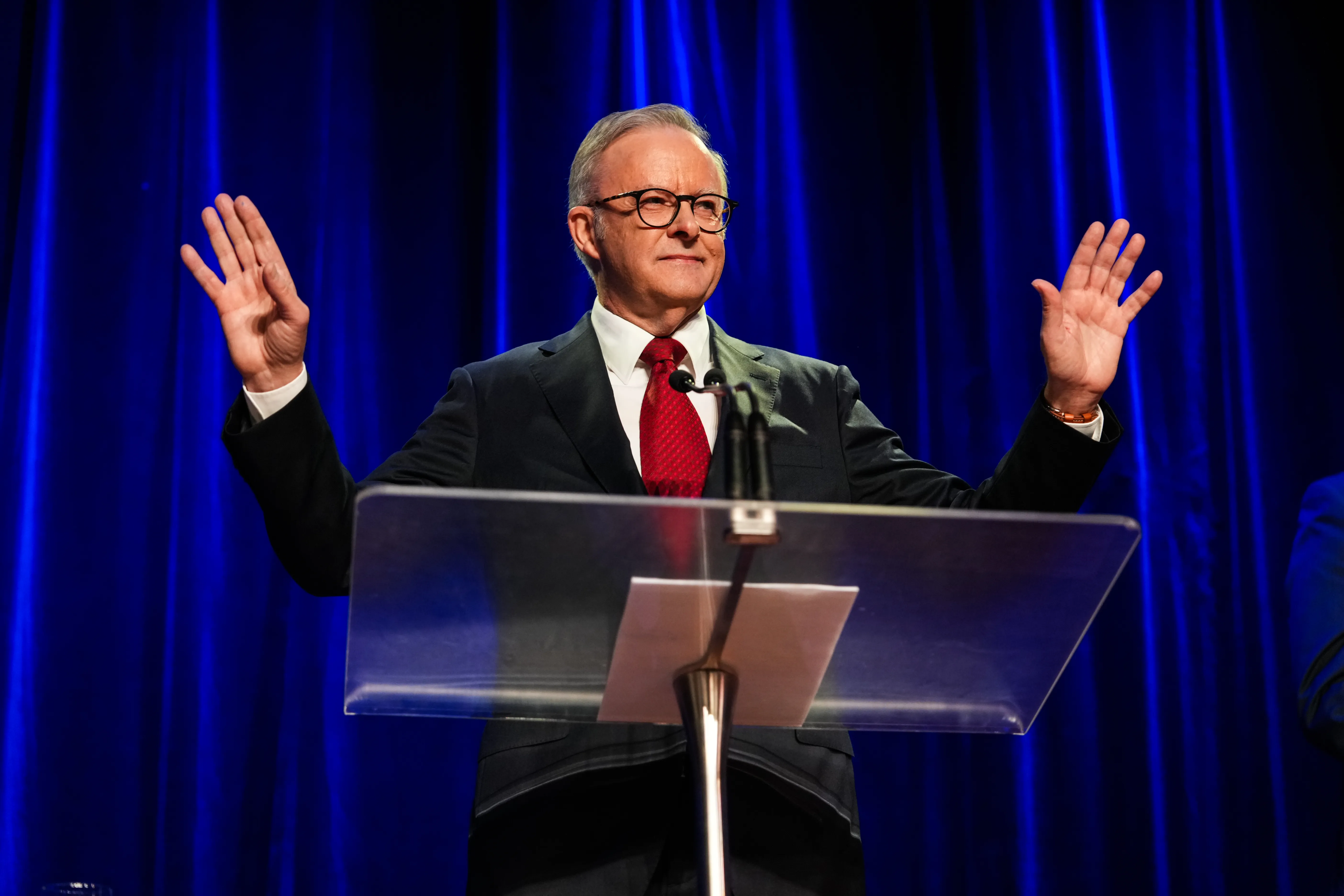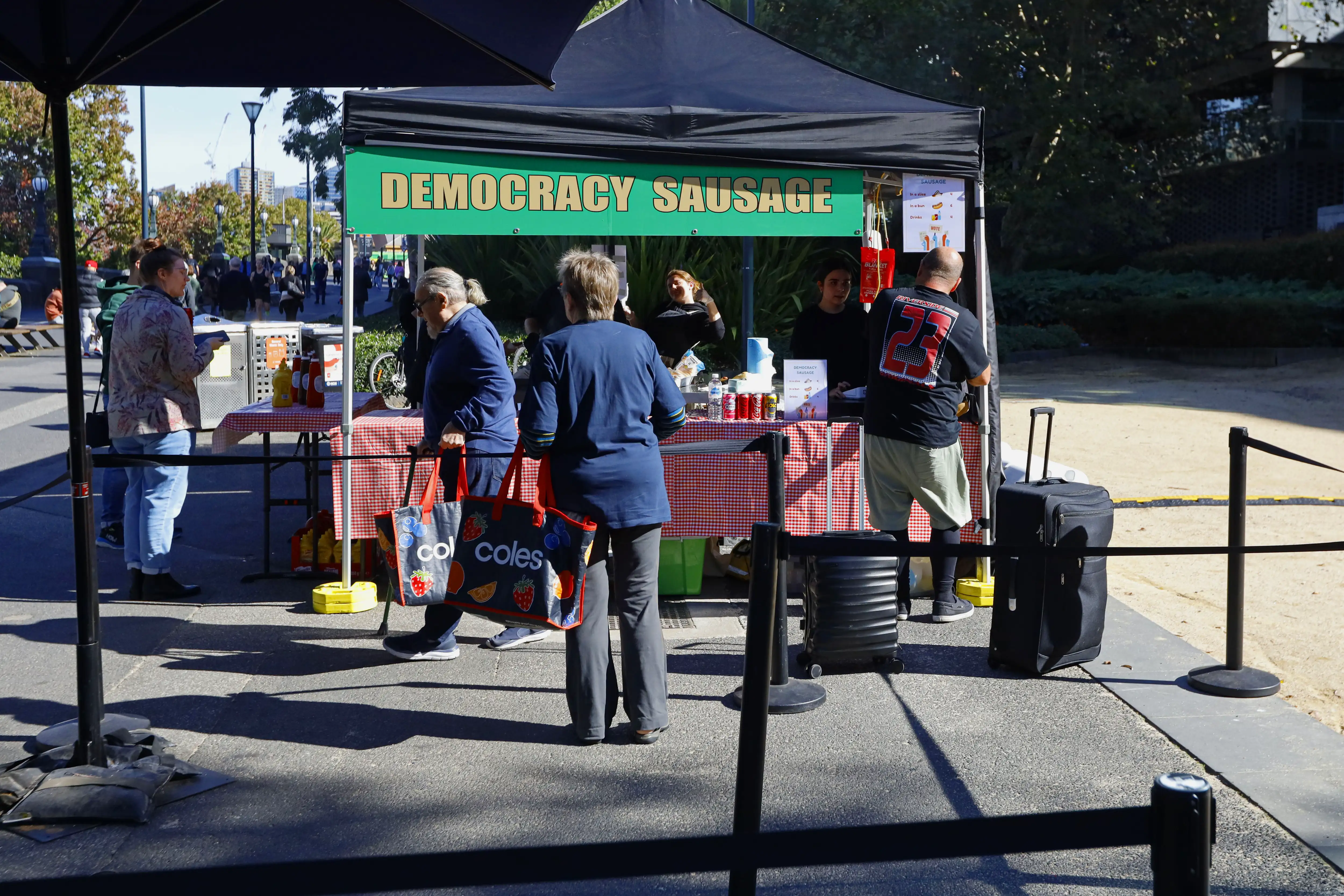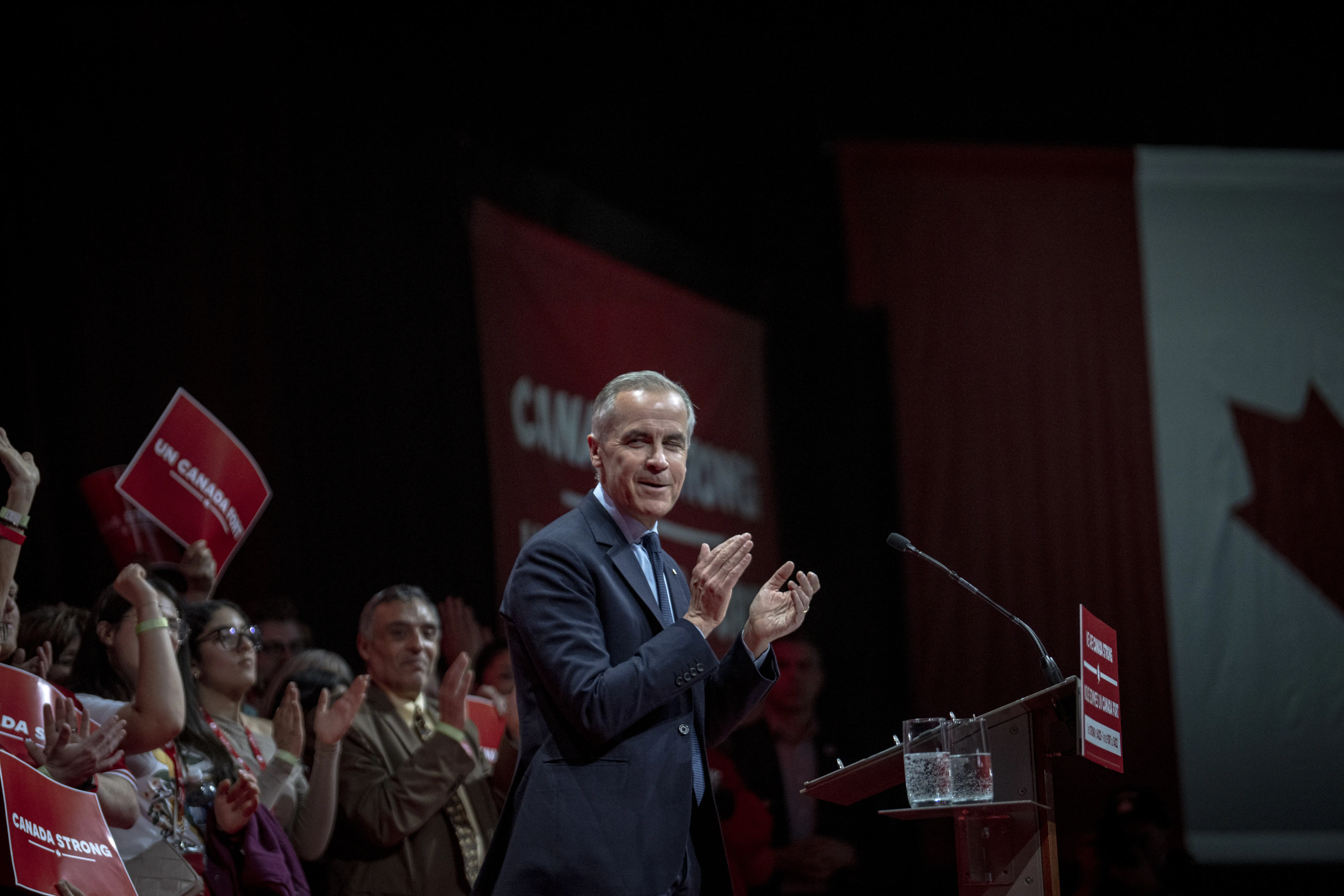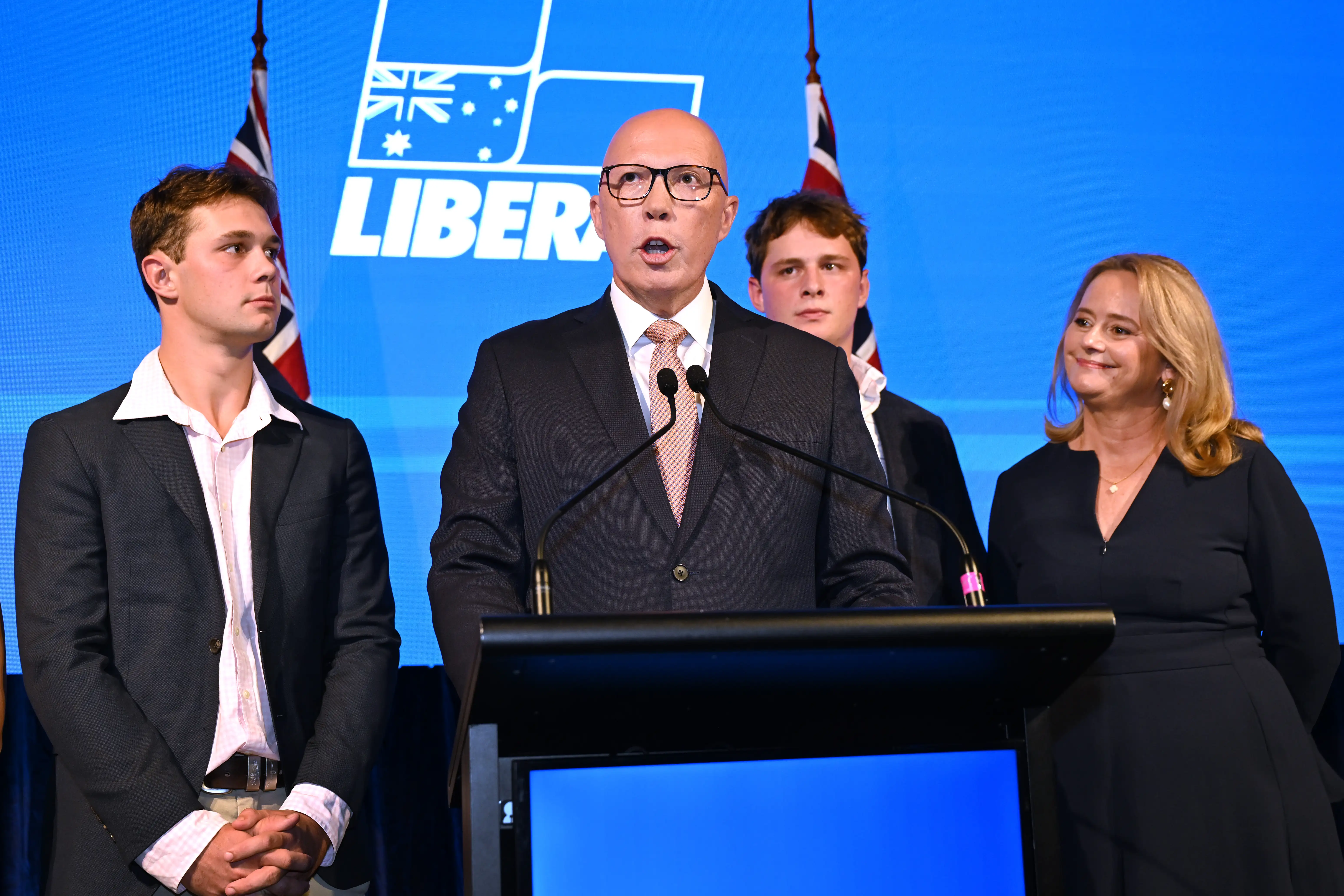
Politics & Society
Your social media feed is changing democracy

Many Australians saw this Federal election as a referendum on the country’s future in a world re-shaped by Donald Trump. Labor’s confident win is a data point in a global realignment
Published 5 May 2025
This is an age of political realignment. Every political era has its own logic, its own mood. But in today’s world – shaped by global media, economic interdependence and a resurgent populism – the boundary between domestic and international politics has nearly dissolved.
We like to think our country’s politics are special – uniquely shaped, uniquely ours. But the past year has made clear: no democracy is immune from global tides.

The cycles of change have increased in velocity.
Last year, rejection of incumbents defined nearly every election around the world. The pandemic may have receded, but its aftershocks persisted.
People were angry – at economic instability, the cost of living and the sense that no one was truly in control. The upheaval of how we live and work shook the foundation of everyday life, and voters took that frustration to the ballot box.
People went into 2024 ready to punish anyone they saw as responsible for that instability and the pain of a cost-of-living crisis that hurt nearly everyone’s wallets.
Seen through this lens, 2024 was not a contest of left versus right, but one of incumbents versus insurgents. Ruling parties lost ground across the spectrum.

Politics & Society
Your social media feed is changing democracy
The UK, Iceland, India, South Africa, Japan, Senegal and France all saw sitting governments punished. These shifts happened in both political directions, the only clear trend being that people wanted to punish incumbents.
Notable exceptions were Mexico and Ireland, but these are places where the cost-of-living-pressures were less, taking them out of the global trend at both ends.
As 2025 dawned, the question became: would the anti-incumbent wave roll on?
Conservatives like Pierre Poilievre in Canada and Peter Dutton in Australia seemed to think so. They bet that a dose of cultural warfare, turbocharged by Trump’s victory at the end of 2024, would carry them through.
At that moment – just after Trump’s win but before he returned to office – the populist mood felt edgy, ascendant and globally resonant. They mistook momentum for mandate.
From Poilievre’s slick YouTube attacks to Dutton’s revival of culture war rhetoric, the strategy wasn’t to govern, but to perform insurgency from the opposition benches.

It was edgy, almost cool to be in this political space. It seemed that the victorious moment would last a while.
But politics doesn’t happen in a vacuum.
When Trump took office, the vibe turned into reality. The disruption he promised arrived swiftly. In his first hundred days, he set the global economy on edge and shattered the United States’ standing as the anchor of the Western alliance.
These disruptive populist leaders usually do exactly what they say that they’ll do – disrupt and upend the systems.
That can be a good thing – modern states are often both bloated and don’t support those most in need enough.
But what Trump did was to set the global economy on fire and to singlehandedly dislodge the United States from a trusted position as the senior partner in the broader Western alliance.

Politics & Society
The subtle theatre of Australia’s election season
For eighty years, much of the world was stitched together by commerce and institutions forged or backed by the United States. Even in moments of crisis, the stability of US Treasury bonds provided ballast. That stability is gone.
The laws of political gravity were abolished.
Trump’s tariffs, erratic immigration policy and unrelenting chaos have made the world’s largest economy impossible to predict. His immigration stance drew the ire of the Pope and signalled a broader moral retreat from the post-war liberal order.
Now, world leaders are reassessing.
For decades, US economic guarantees and military protection were taken for granted. No longer. Allies are saying out loud what they once only whispered: the United States is no longer reliable.
That’s the political mood of 2025. Countries around the world aren’t just reacting to Trump – they’re repositioning themselves entirely.
And nowhere is that more consequential than in Australia.

As a Pacific nation more economically intertwined with China than the US, and as a democracy that has long leaned on Washington, Australia stands at a crossroads: stay the course with a crumbling ally or strike a more independent path in the Asia-Pacific.
I’ve heard the same thing from dozens of Australians in recent weeks – that this election was a referendum on Australia’s future in a world Trump is reshaping.
Not a referendum on policy, exactly, but on posture: who we align with, who we follow and who we want to be.
And that referendum was answered clearly. Labor will enter a second Albanese Government with one of the largest majorities in Australian history.
Voters around the country, including in places previously thought to be safe Liberal seats, decided to vote for Labor, sending them to Canberra with an increased majority.

This is something that hasn’t happened in Australia in generations.
Voters have placed their faith in Labor, giving them the tools to make big change, if they can figure out what change that is supposed to be.
This election seems to have been won less on Labor’s ability to define a clear and articulate vision for the future of Australia, but rather on its ability to run a sound campaign while the Coalition floundered, unclear of the political direction of the country or the Western world.
Labor didn’t win by defining a bold new national vision. It won by staying grounded while the Coalition flailed – unsure of how to navigate a world where Trumpism no longer feels abstract but has returned, fully formed, to the halls of power.
Dutton, like so many of his counterparts abroad, fought the last war – assuming anti-elite fury would be enough, even as voters began craving something steadier.

His dabbling in the Trump-style culture wars and his inconsistent campaigning was rejected by the country and by the voters in his own seat – a seat he was ousted from (having held it for more than two decades) by Labor newcomer Ali France.
That makes this election more than a domestic story. It’s a data point in a global realignment. As the centre wobbles and Western alliances fracture, countries like Australia are making clear they won’t be dragged into Trump’s world.
Australians are choosing their own way forward. And the rest of the world is watching.